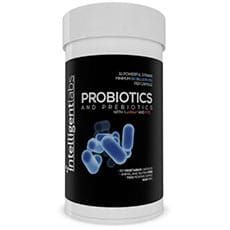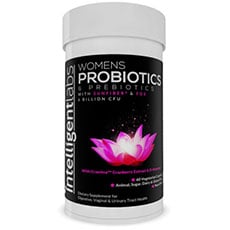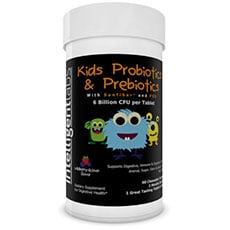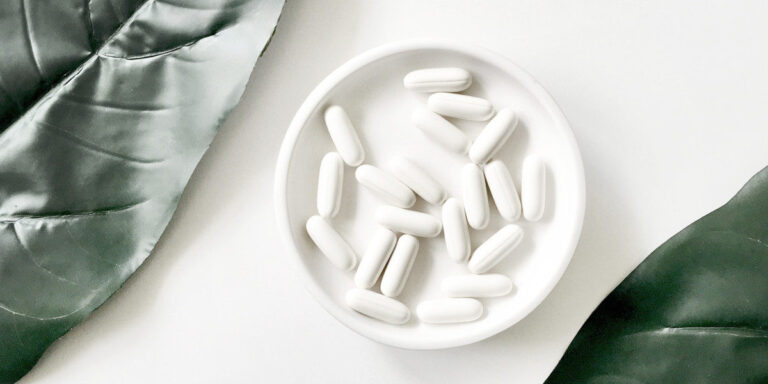Best Supplements To Boost Your Immune System
As you well know, getting sick is no fun… not at all. Illness can derail your plans, shatter your dreams, and even end your life. We strive for so many things in life, but do you know what should be everyone’s highest priority? Their health. Everything else can literally wait. A healthy, active lifestyle and investing in the right immune-boosting supplements can do wonders for your health.
What should do before buying immunity-boosting supplements
Just because your best friend or favorite celebrity says the supplement they’re taking is great doesn’t mean you should take it too. There’s no one-size-fits-all answer to all questions when it comes to supplements. Before purchasing any supplement, you should consult a doctor.
Do you have a deficiency in a specific vitamin, mineral, or nutrient? What do you want to achieve with supplementation? What do you hope to improve?
A trained healthcare professional will be able to provide answers tailored to your specific health condition. A medical expert may order blood tests to confirm any deficiencies. They can then recommend the appropriate supplements and/or medications to treat your condition.
While supplements are effective, it’s still better to get immunity-boosting nutrients from food. A healthy, balanced diet is important because it helps your body receive a variety of nutrients, which in turn contribute to your feeling great and glowing! Plus, it’s always more enjoyable to eat something than to swallow a bunch of pills.

However, when it comes to cost and convenience, supplements often come out on top. Healthy, organic, and nutrient-dense foods are often expensive and/or not readily available. But supplements? You can easily buy them, and most brands contain at least a month’s supply of supplements per bottle.
But be careful. If you’re taking medication, pregnant, or breastfeeding, you should definitely consult a doctor. The last thing you want is for the supplement to interfere with your medication and/or your delicate health condition.
The 12 best supplements to boost immune system function
If you don’t know what to look for, finding the best immunity-boosting supplements can be like searching for a needle in a haystack. On Amazon.com alone, a search for “dietary supplement” in the Health & Household category yields over 50,000 products! Of course, not all of them are designed to boost your immune system. We hope this list of 12 immune-boosting supplements helps you narrow down your search.
Vitamin C
Eating fruits and vegetables rich in vitamin C should be part of your diet, but if not, supplementation is the way to go.
Taking vitamin C, or ascorbic acid, is widespread these days—and for good reason. It’s a powerful antioxidant with scientifically proven immune-boosting properties.
Vitamin C helps in the formation of collagen for bones, cartilage, teeth, gums, blood vessels, and skin. It also aids in iron absorption. So, when you consume iron, vitamin C helps improve the absorption of iron in the intestines.
The recommended daily intake is 75 mg for women and 90 mg for men. However, most vitamin C supplements go far beyond this. Many brands offer 500 mg to 2000 mg or more, but anything above your body’s needs is excreted in your urine.
Vitamin D
Sunbathing – or even just going out when the sun’s high up – is enough for your exposed skin to make vitamin D. This is why vitamin D is also known as the ‘sunshine vitamin’. Sunbathing – or even just going out when the sun’s high up – is enough for your exposed skin to make vitamin D.
When the sun’s UVB rays hit your skin—or more specifically, the cholesterol in your skin—vitamin D synthesis occurs.
Unfortunately, prolonged sun exposure isn’t exactly healthy, especially for some skin types. Skin cancer is a real threat, so supplementation is often a good alternative. Depending on where you live in the world, you may not get enough sunlight. For this reason, it’s convenient to get your “sunshine vitamin” in tablet or capsule form.
Vitamin D not only plays an important role in your immune system, but also interacts with calcium, helping your body absorb more of this important nutrient. For older people, adequate vitamin D levels are very important for preventing muscle weakness and poor posture and reducing the risk of falls.
Zink
Zinc is a trace mineral with well-known positive effects on the immune system. It contributes to a lot of different
Zink is a trace element with known positive effects on the immune system. It contributes to many different functions in the body, including macronutrient selection, fatty acid/vitamin A/carbohydrate metabolism, protein synthesis, fertility, and reproduction. It also contributes to the maintenance of hair, nails, skin, vision, and—in men—testosterone levels.
Zinc is found in most foods, including meat, eggs, fruits, whole grains, shellfish, legumes, seeds, dairy, and nuts. But if you think you’re not getting enough of this important mineral, supplementing with a product like SHIELD Immunity Booster can do wonders for your health.
Folate or Folic acid
Before you buy a folic acid supplement, we highly recommend you check first if you carry the defective MTHFR gene.
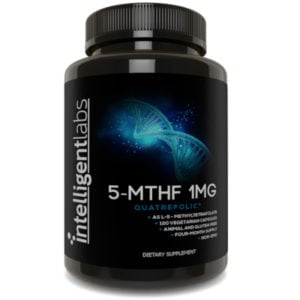
If so, you need a supplement that contains the 5-MTHF form of folic acid so that your body can truly benefit from the amazing health benefits of folate.
Although folate and folic acid are often used interchangeably, there is a slight difference. Folic acid occurs naturally in whole foods such as eggs, beans, fruits, and green leafy vegetables. Folic acid is the synthesized version of folate and is commonly used in processed foods and supplements.
Folic acid not only contributes to the function of the immune system, but also to normal psychological function, blood formation, amino acid synthesis, the growth of maternal tissue in pregnant women, and even the protection of babies from neural tube defects.
Vitamin B12
Vitamin B12 is an important nutrient your body needs to function properly. Vitamin B12 contributes to metabolism and red blood cell formation, helping to prevent fatigue. Vitamin B12 also promotes normal psychological function and contributes to both the nervous and immune systems.
Vitamin B12 supplementation is important if you don’t consume enough vitamin B12-rich foods. These include liver, chicken, beef, fish, shellfish, milk, eggs, and more.
Vitamin B6
Vitamin B6, also known as pyridoxine, is commonly found in foods such as chicken, pork, fish, whole grains, eggs, beans, potatoes, bananas, and vegetables. If you are deficient in this vitamin, i.e., if you suffer from kidney disease or your intestines cannot absorb the nutrients from foods, supplementation is necessary.
Vitamin B6 contributes to many important functions in the body. These include red blood cell formation, homocysteine/protein/glycogen metabolism, hormonal regulation, psychological function, and support of the nervous and immune systems.
Omega-3
Omega-3 has a long list of health benefits. Not only does it strengthen the immune system, but it also has anti-inflammatory properties and aids recovery and exercise. It’s good for the brain, heart, blood, and even the eyes.
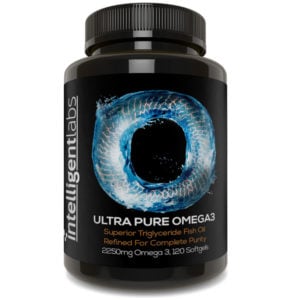
There are three types of omega-3 fatty acids: ALA, DHA, and EPA. ALA, or alpha-linolenic acid, contributes to the maintenance of normal blood cholesterol levels. DHA, or docosahexaenoic acid, contributes to the normal development of the brain and eyes in fetuses and breastfed infants. Both EPA and DHA make important contributions to the normal function of the heart.
When it comes to omega-3 fish oil supplements, choose a brand that uses omega-3 in its natural triglyceride form, NOT the inferior ethyl ester form. Additionally, science shows that a 3:2 EPA:DHA ratio provides the best health benefits.
Each serving of Intelligent Labs Ultra-Pure Omega-3 Fish Oil Capsules contains 1224 mg of EPA and 816 mg of DHA, a 3:2 ratio. It’s also in natural triglyceride form, so you can be sure you’re getting a high-quality fish oil supplement!
Vitamin A
Vitamin A—and its precursor beta-carotene—are important for healthy eyes. Not surprisingly, a deficiency in this vitamin leads to poor vision. Vitamin A also has anti-inflammatory properties that strengthen the immune system. It also helps with iron metabolism and the maintenance of mucous membranes.
Foods rich in vitamin A include beef liver, cod liver oil, sweet potatoes, spinach, pumpkin, carrots, milk, broccoli, and other orange/yellow vegetables and fruits. If you consume these foods in sufficient quantities, supplementation may not be necessary. Stick to the recommended daily intake of vitamin A, as too much can be toxic to your body.
Probiotics
Did you know that a large part of your body’s immune system is located in your gut? Therefore, it’s important to ensure your gut stays healthy and that the good bacteria can keep the bad ones at bay. A healthy gut helps the body fight off infections, which can lead to improved overall health.
This is where probiotics, or live cultures, come in. Eating fermented foods (which naturally contain probiotics) like yogurt, kefir, kimchi, pickles, miso, and sauerkraut supports gut health. But in terms of colony-forming unit (CFU) count, fermented foods are surpassed by probiotic supplements, which are specifically formulated to contain billions of active cultures per serving!
Intelligent Labs offers three types of probiotic supplements. All of our probiotics contain prebiotic, or non-digestible, fiber. This serves as food for the probiotic cultures, preventing them from prematurely dying.
Iron
Iron is an essential trace element that plays a key role in blood formation. It contributes to the formation of red blood cells and hemoglobin, as well as to normal oxygen transport throughout the body. If your iron stores are low, you will develop iron deficiency anemia, which makes you short of breath and constantly extremely tired. Because iron is essential for a healthy immune system, you will inevitably get sick more often.
While iron is important for the immune system, too much of it can be quite toxic to the body and even fatal. Therefore, it’s important to consult your doctor first before consuming this nutrient.
Selenium
Selenium, another essential trace element, is also important for your health, especially your immune system. Since the human body cannot produce selenium itself, you must consume it in sufficient amounts through food or supplements.
Healthy selenium levels are important for thyroid function, i.e., the production of thyroid hormones. It directly impacts your body’s metabolism, growth, and development. This mineral also contributes to the protection of cells from oxidative stress, leading to a faster immune response.
Copper
Copper may be better known for its use in electrical machines, but it’s incredibly important for the immune system to function properly! Since our bodies can’t produce this mineral on their own, we must consume it in tiny amounts through food or supplements. Foods rich in copper include leafy greens, nuts, seeds, oysters, organ meats such as liver and lobster, and dark chocolate.
In addition, copper in the diet contributes to the normal function of the nervous and immune systems. Copper also supports iron transport in the body, protects cells from oxidative stress, and maintains normal connective tissue.

Why is it so important to strengthen your immune system?
Your immune system is a part of you and is literally your body’s first line of defense against all the pathogens you come into contact with every day. You don’t see these microscopic enemies—germs, viruses, bacteria, fungi, and the like—but you feel the damage they wreak on your body as they overcome your immune system.
When you strengthen your immune system, you give your body the “weapons” it needs to fight and defeat these invaders. Yes, you are actually giving your body weapons, because your immune system is not a single entity—it’s a very complex system that works together to protect you! A weak immune system, on the other hand, negatively impacts your health and, therefore, your life.
One of the best ways to boost your immune system is to take the right supplements. These supplements help you replace the vitamins, nutrients, and minerals you’re not getting enough of from your diet, helping to strengthen your immune system.
Conclusion
Modern science and technology have given us access to supplements designed to boost our immune systems and our overall health. But of course, not all supplements are the same. Therefore, it’s important to do your research to ensure you’re getting exactly what your body needs.
💬 Do you have something on your mind? Share your thoughts in the comments. We’d love to hear from interested people like you.
📩 And while you’re here, subscribe to our newsletter to receive more interesting information (and secret benefits)!


